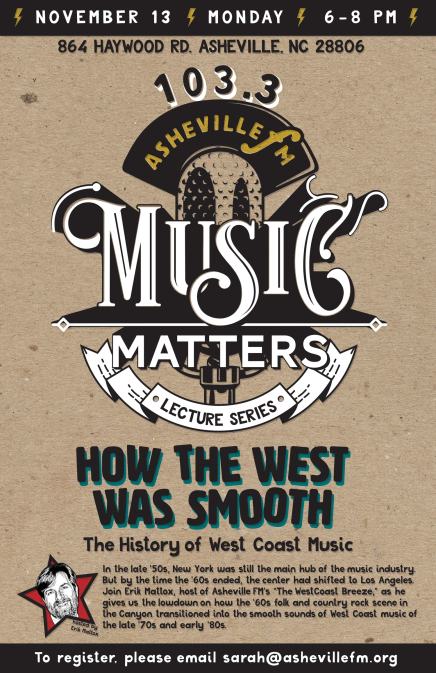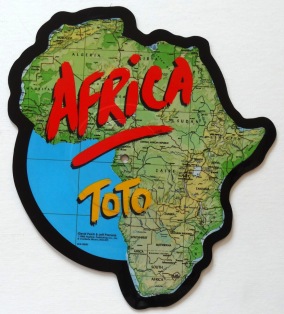How The West Was Smooth – the 2017 Presentation

On November 13th, 2017, I presented a PowerPoint on the history of West Coast music called How The West Was Smooth. This was part of a Music Matters Appreciation Lecture Series sponsored by 103.3 Asheville FM. The amazing poster above was designed by an Asheville FM volunteer named Pia.
The video was initially posted on YouTube but has been offline for a while. So I uploaded it myself. You can access it via the link below:
How The West Was Smooth Presentation
Here is the press release which promoted the presentation:
Music Matters is a series of bimonthly appreciation lectures given by Asheville FM DJs, volunteers, and affiliates. Join us for the next presentation in this series, “How the West Was Smooth: The History of West Coast Music.” The West Coast sound is one of the most appreciated genres of music worldwide today. Artists such as Toto, Boz Scaggs, Fleetwood Mac, Ambrosia, Pablo Cruise, Bill LaBounty, and Steely Dan have influenced a new generation of NuCoast bands worldwide from Scandinavia, France, England, New Zealand, Brazil, and many other countries. From 6 – 8pm on Monday, November 13th, Erik Mattox, host of Asheville FM’s The WestCoast Breeze, will give you the lowdown on how the 60s folk and country rock scene in the Canyon transitioned into the smooth sounds of West Coast music of the late 70s and early 80s.






